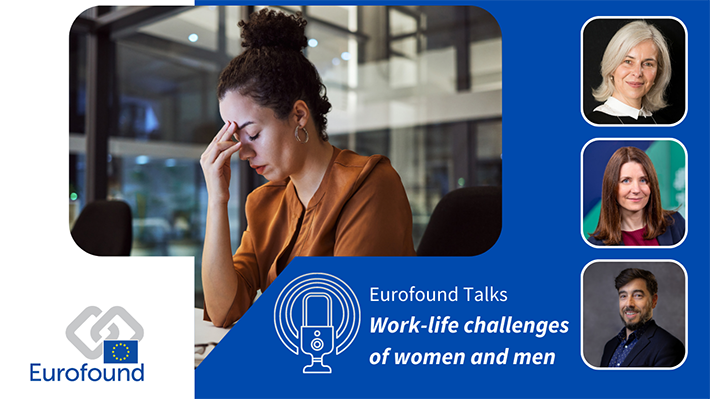
Today, International Women’s Day, is an opportunity to celebrate the social, economic, cultural, and political achievements of women, as well as assess the progress of women in all aspects of society. Eurofound has published a special episode of the Eurofound Talks podcast to look at the work-life challenges of women and men, and in particular how gender segregation on the labour market, and gender inequalities in the division of paid and unpaid work, impede progress towards gender equality in Europe.
Gender equality is a core value of the EU and an important aspect of Eurofound’s work. Eurofound adopts a gender mainstreaming approach systematically in its research. Where possible, research findings, including surveys and policy analyses, disaggregate data by gender. Other research projects provide specific analysis relevant to gender equality.
A recent analysis of the European Working Conditions Telephone Survey, for example, highlights that women are over three times more likely to suffer from unwanted sexual attention than men at the workplace. Other recent research has highlighted the issue of persistent gender segregation in sectors, occupations and workplaces, and that only one in five workers worked in a gender-balanced workplace.
In the new episode of Eurofound Talks Mary McCaughey speaks with Eurofound Working Life researchers Jorge Cabrita and Viginta Ivaškaitė-Tamošiūnė about how, when paid and unpaid work are combined, women do eight full-time weeks more work than men per year, and the broader implications of this for society. They also discuss how indicators of work-life balance and work-life conflict differ for women and men, as well as the policy action that can be taken to improve gender equality in Europe.
Listen to the episode on the Eurofound website, or wherever you get your podcasts. You can also watch the recording of this episode on our YouTube page.
More information
- Blog: No one left behind? Gender segregation in the workplace sees women losing out
- Blog: Job quality is pivotal in addressing today’s workplace and societal challenges
- Data story: Violence in the workplace: Women and frontline workers face higher risks
- Publication: Working conditions in the time of COVID-19: Implications for the future
- Topic: Gender equality
- Topic: Work-life balance